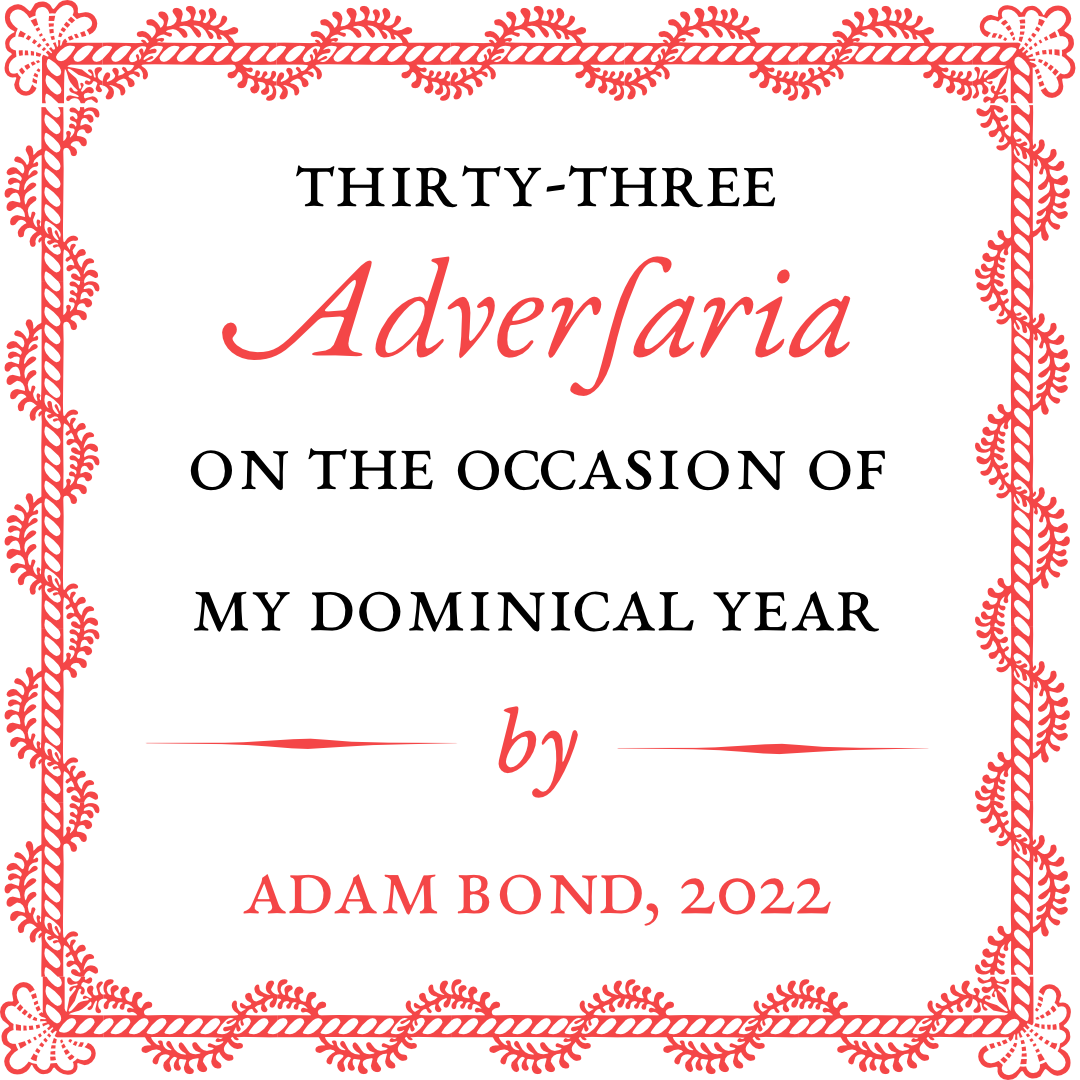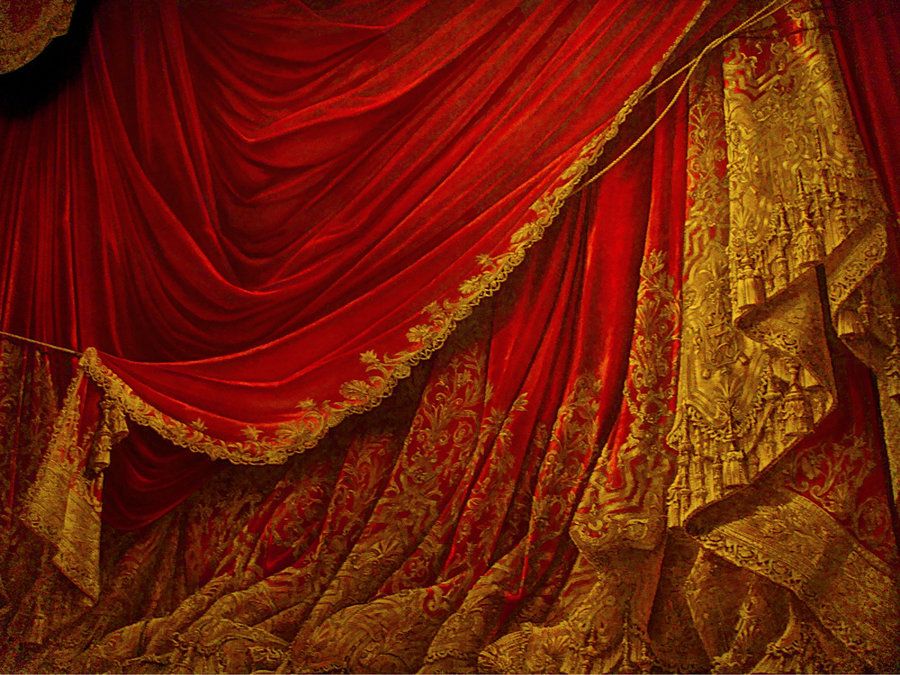
— 1 of 33 —
I turned thirty-three earlier this year and despite the fact that most people think I’m more like forty-three if not ninety-three, I am taking advantage of this my dominical year to begin a sort of public ministry that may end in my crucifixion and death. Please don’t mistake my meaning, I have no delusions of Messianic grandeur, but I nevertheless suspect that I have at least thirty-three (if not ninety-three) things to say that are unlikely to be met with enthusiasm and so, I figure — fuck it — let’s dance around the third rail and see what happens.
Authenticity is horseshit.
It is thoroughgoing horseshit and we should proactively hate, loathe, and abominate the term’s every utterance as if it had issued from the grody, raging, red-hot loins of Satan himself — or the writers of self-help literature, but I repeat myself. Let’s start with the opposite, though: People can’t be inauthentic. They are hesitant or ashamed. They are afraid of repercussions or they are duplicitous. And these are entirely normal, non-pathological behaviors. We come by them quite honestly without deliberation or contrivance.
Sometimes we should hesitate. Sometimes we should be ashamed — especially for vaingloriously writing thirty-three unsolicited opinions to mark the anniversary of the year one was coerced involuntarily into breathing. Sometimes the repercussions are worth considering and the costs of actions are not worth bearing. And, as perennially fallen fucks with an unbroken history of self-interest, we lie and defraud and mislead, from time to time even consciously.
To wish to be authentic is the reckless triumph of self-ignorance and victory of self-obscuration. It is the tacit admission that we are so deeply uncomfortable with our origins and formations, that it would be better to magic them away and pretend instead that there was some kernel of original truth, some germ of secret fire that preceded them — whole, unbroken, and unadulterated. Before the world sunk its cruel and molesting talons into us, there was this perfect, untamed, not yet despoiled thing: the true us, the authentic us.
Authenticity is, in fact, the negation of what it purposes to be, it is willful self-deception. It is to enthrone the blinders of bias, to coronate the inhibiting erasures that prop up the shambles of human perception, and to say, “These are truth and I will honor above all else my willful ignorance of my composition.”
We are an untidy agglomeration of inextricable inclinations and bygone impressions, some of them shared in a crude and inchoate way with all of humankind, some more directly but not quite inviolably heritable from our immediate ancestors, and the vast majority composed of the enculturated and circumstantial dross we consider such a blasphemous violation.
Eliminate all of this supposed violence done to us, all this malformative trauma, and what you would have is a mewling, puking infant id that can’t differentiate itself as itself from anything else. We are the entangled accretions of our experiences; forever circumscribed by the patterning of past perception; the inescapable products of a crude but highly adaptive biological scaffold capable of supporting the development of an immense variety of individuated architectures.
We are made of automatic and learned impulses of varying volume and acuity. And more than anything we are masses and morasses of cultural impedimenta. Absolutely none of which, apparently innate or seemingly acquired, can be easily distinguished one from the other save by sophistic force.
If what we want is honesty, let us be full-throatedly so. If we are honest, we must accept that we are not our own, that we are the confections of often arbitrary forces over which we exert little control. We must accept that within each us is the full gamut of human possibility, that no one possesses some eugenically-tinged moral election superior to the self-evident reprobation that lurks everywhere else.
We are “beings of genius, passion, intellect, conscience, power” and these gifts, these curses, are the indivisible source of everything we are, acted out “in great deeds, in great thoughts, in heroic acts, in hateful crimes.” The license we want, the permission we want, the affirmation we want for the pleasure we want is not authenticity. The pain that we endure, the wounds etched into us and scarred over, the discontents that have settled upon us, and the frequent settlements with disappointment are not inauthentic.
The kindling effigies we’ve made of our so easily otherized traumatizers, those scapegoats trussed up and heaped onto our personal altars of holocaust, are not the handiwork of true selves, burnt offerings to manifest our destinies; they’re the wasting, enfeebling purgatives of a people who have been fed so much unwholesome horseshit that the only satisfaction they can conceive is indistinguishable from bellypinch and bloat.
I understand, I do, the appeal to some inviolable sense of self, some immutable something impervious to attack; but the self is not inviolable, it is only partially immutable — and an incredibly small part, too, and we are not impervious to attack.
To pursue this vapid notion of authenticity is not an act of courage but of cowardice. It elevates self-limiting narratives confected deeply within the abysses of our minds into insuperable determinants, reflexes over which have no choice and to which we, and not only us but everyone else, must submit. It is a kind of enslavement of ourselves to the stories we’ve told ourselves about ourselves.
And not the surface stories, the stories that we so easily shed when we utter cliché phrases like “I need to stop pretending to be someone I’m not,” which really means that we want to stop doing things that make us feel unhappy or conflicted; but the deep-seated pretensions, the stories that are so embedded into our autobiography that they seem inseparable from us.
If instead we wish to be courageous, we must first be humble, we must ask ourselves who it is that we are and why and how so; and then we must reconcile ourselves to the work, not of honoring and submitting to that truth like predetermined automatons, but by living with the good, the bad, and the ugly, neither insisting it be celebrated, nor making apology for it, nor whipping ourselves into a frenzy over how little power we appear to wield over it.
Rather than be authentic, we must try to be human, each and every day navigating anew the joys and sorrows, the flatteries and affronts, the enthusiasms and the ire of being so wondrously and terribly composed. We must accept our multitudes and make active choices to do something with them — to curb the worst, cultivate the best, to recognize the trivial and the significant alike and better distribute our emotional stores.
I remain convicted that it is not conformity (which emerges naturally without much prompting from us) and it is not persecution (which next to no one in free societies experiences in any meaningful way), but that it is a romantic obsession with the mirage of individual authenticity that is alienating and dislocating us from one another.
Instead of authenticity, what we need is to see ourselves and one another for who and what we are: method actors, all of us players upon the stage, all of us masked, all of us in costume, all of us looking for our cues, and struggling to recall our lines, none of us any more true than anyone else; but nevertheless, each and every one us wholly real, wholly indivisible, and wholly responsible to and for every other, wholly owing and owed every dignity and respect.
And why? Because we are all deeply wrong for one another, we are all batshit fucking normatively nuts off our asses and no one is exempt; and yet the only thing we can do this side of heaven is survive the instant when incompatibility becomes unquestionable and the full recognition that we are all we’ve got.
Of course, I could very well be wrong.


